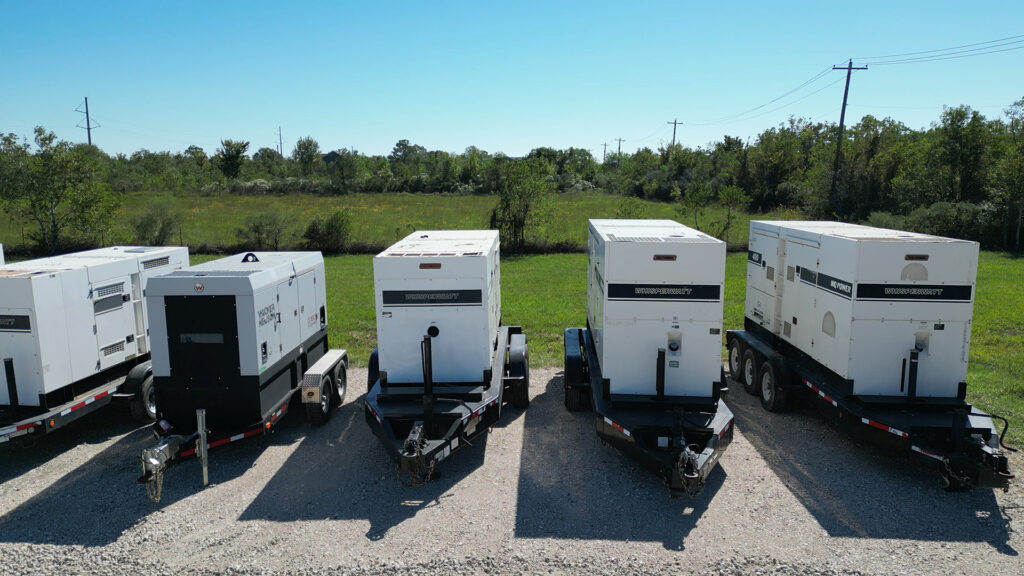When it comes to having a steady, reliable power supply – no matter what the conditions – diesel generators are great options for many industries. But how long can a diesel generator run continuously? The good news is that the continuous operation time of a diesel generator set is unlimited. However, continuous operation does not always mean you should run your generator at max capacity! If you run your generator at heavy load for a longer period, you will need to allow a period of appropriate idling to give it a rest.
As a general rule of thumb, a diesel generator set can operate for 8–24 hours according to the size of the fuel tank, power output, and power load. This is not a problem during a short blackout or brief power outage. However, for a long-term emergency, you may need a larger fuel tank or the ability to regularly refuel your generator tank.
Is It Safe To Run A Diesel Generator Long Term?
Although we have discussed how long diesel generators can run continuously, there are also some risks associated with doing so. The longer a generator operates, the more heat it generates. Under average conditions, there is little possibility of permanent damage. However, if a generator runs continuously for more than 12 hours at a temperature above 104 °F, it may overheat and sustain some damage.
To keep your diesel generator running smoothly, daily maintenance is important. Even if a generator can run for several weeks at a time, you need to change the oil frequently and perform basic maintenance. Regular oil changes will maximize power output, reduce wear, and prolong the life of your generator. In addition to routine maintenance, your generator should undergo professional inspection and maintenance at least once a year to identify any minor problems and resolve them before they develop into larger problems.
Generator Type, Fuel Source, And Run Time
There are two main types of diesel generators: standby and portable generators. Both are designed to help you keep lights on during a power outage; however, not all generators can be left running for days at a time.
- Standby generators – a standby generator is a stationary electricity source designed to provide power to residential or commercial buildings for up to several days depending on its size, fuel source, and brand. Unlike emergency short-term generators, standby generators are made specifically for use in longer-span emergencies and are permanently installed. Standby generators come in various sizes and types. Each one has a different run time based on these two factors.
- Portable generators – portable generators can run up to 2,000 total hours. Unlike standby generators, portable generators are designed to run for 6–18 hours. While they have their application in an emergency, they are not recommended for use during long-term power outages or in off-grid situations where a generator is the main power source.
The type of fuel you use to run your generator also affects its run time. A generator can continue running as long as it has fuel to do so. However, it may be more difficult to replenish your fuel supply during a natural disaster or other emergencies. Most generators in the Houston and Texas Bay area rely on diesel fuel because it is dependable and widely available.
- Diesel – diesel generators can be resourceful, although the amount of diesel is limited to the amount you can access and store in a tank at any one time. Diesel fuel can also be expensive, especially when you factor in delivery and storage charges.
Why Diesel-Only Generators Are Preferred
Many businesses in the Houston and Galveston region rely exclusively on diesel-powered generators because of their proven durability and straightforward fueling process. Unlike systems dependent on external pipelines, diesel fuel can be stored on-site, ensuring availability during severe storms or emergencies. With the right tank setup, operators can extend runtime and maintain reliable power without the risks of pipeline interruptions.
Fuel Efficiency in Harsh Conditions
When choosing the right fuel for your industrial generator, it’s not just about availability or cost—it’s also about how that fuel performs in extreme weather. Cold temperatures can cause diesel to gel, while hot environments may affect fuel storage and stability. For practical advice on operating generators in these challenging conditions, check out our guide on extreme temperature use – especially Tip #2, which dives into cold-weather strategies.
What To Know Before You Purchase A Generator
When evaluating an industrial diesel generator, the initial cost can be daunting. Not only is the price tag high, but you also have to consider routine maintenance costs to ensure you keep your investment in top operating condition. If you are suffering from sticker shock, one option is to consider diesel generator rentals.
You can rent a generator for a pre-determined amount of time, for a specific job, or even in an emergency. If you need to keep your operations going during an unplanned outage, many companies offer emergency diesel generator rentals. These generators are ready to deploy at a moment’s notice when disaster strikes. Renting a generator, whether for a planned job or during an emergency, can be a good, temporary solution to hold your business over until you are ready to talk to a reputable retailer about purchasing one.


